WILLS POINT, TX – Gospel for Asia (GFA World) founded by KP Yohannan, has been the model for numerous charities like Gospel for Asia Canada, to help the poor and deprived worldwide, issued this Special Report update on the state of Modern Day Slavery amid the COVID 19 pandemic.
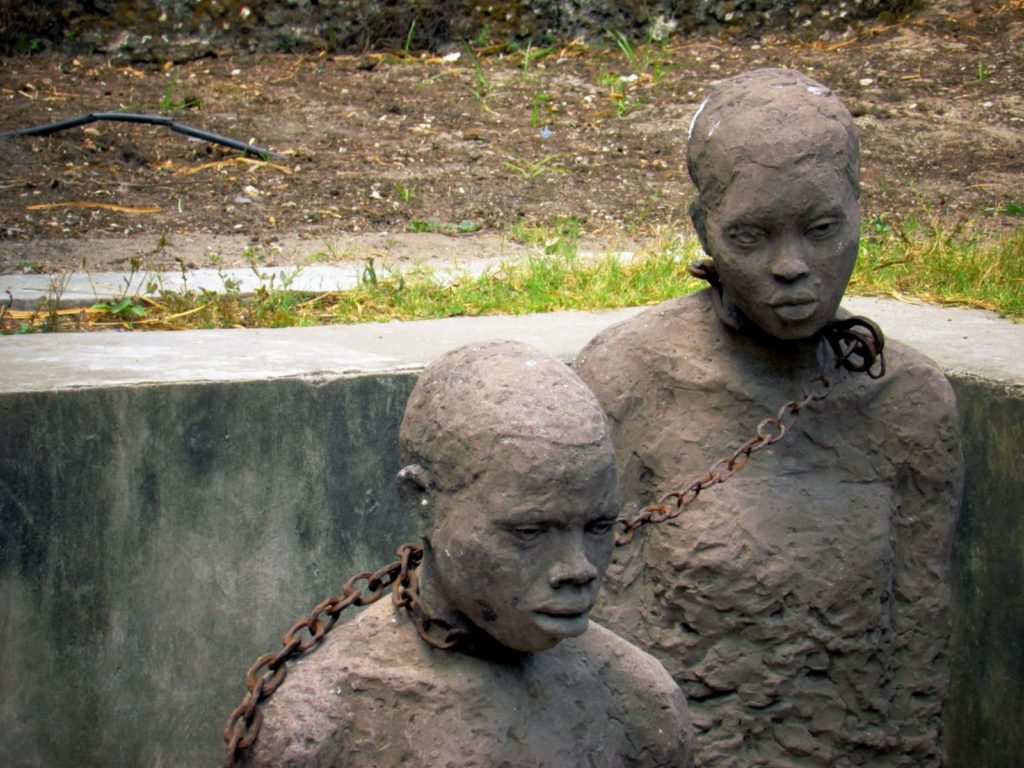
In my original report, 21st Century Slavery & Human Trafficking, I unveiled the overwhelming reality that more than 40 million people in our modern world are trafficked as slaves—more than any other time in human history. In this sequel, I unpack how modern slavery is growing—not slowing—under the covering of the worldwide COVID-19 pandemic.

If there is any sliver of a silver lining to be seen in the coronavirus cloud that has darkened the world in 2020, a reduction in human trafficking might be suspected. After all, with half the globe locked down, the modern-day slave trade must have at least slowed, if not stalled, right?
Sadly, no. If anything, the global pandemic has only heightened the desperation of those at risk and deepened the cunning of traffickers. For example, the World Bank expects poverty to rise for the first time in 20 years, as circumstances push an additional 88-115 million people into extreme poverty, depending on the severity of economic contraction worldwide.
The World Health Organization issued a statement on October 13 saying:
“The pandemic has decimated jobs and placed millions of livelihoods at risk. As breadwinners lose jobs, fall ill and die, the food security and nutrition of millions of women and men are under threat, with those in low-income countries, particularly the most marginalized populations, which include small-scale farmers and indigenous peoples, being hardest hit.
“With low and irregular incomes and a lack of social support, many of them are spurred to continue working, often in unsafe conditions, thus exposing themselves and their families to additional risks. Further, when experiencing income losses, they may resort to negative coping strategies, such as distress sale of assets, predatory loans or child labor.”
With poverty worsened and government resources stretched to capacity, COVID-19 has widened the crack through which the vulnerable fall—or are pulled through. The United Nations Office on Drugs and Crime (UNODC) details how COVID-19 has impacted “the capacity of state authorities and non-governmental organizations to provide essential services to the victims of this crime.”
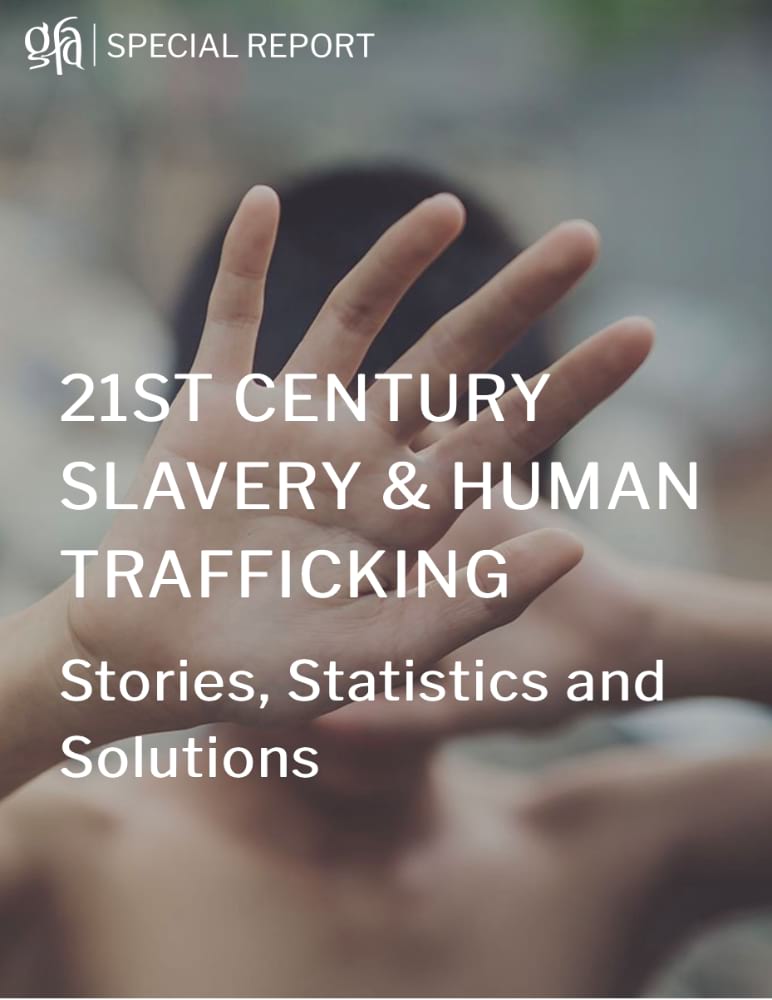
Income, food, housing and health care inequalities have increased in impoverished parts of the world, and these “drivers … increase the risk of sexual and labor exploitation, and are being used by criminal groups to scale-up modern day slavery activities,” warns the distinguished British medical journal The Lancet.
Rather than diminishing it, the ongoing coronavirus crisis has cemented human trafficking as the third biggest illicit trade on the planet, behind only illegal arms and drugs.
As detailed in a previous Gospel for Asia special report on the issue, human trafficking generates an estimated $150 billion a year from the oppressed lives and broken hearts of men, women and children. What sets human trafficking apart from other major issues Gospel for Asia (GFA) has addressed in its series of articles on key global challenges is that it is entirely man-made, both exacerbating and taking advantage of natural factors like disease, economic impoverishment, climate change and the coronavirus.
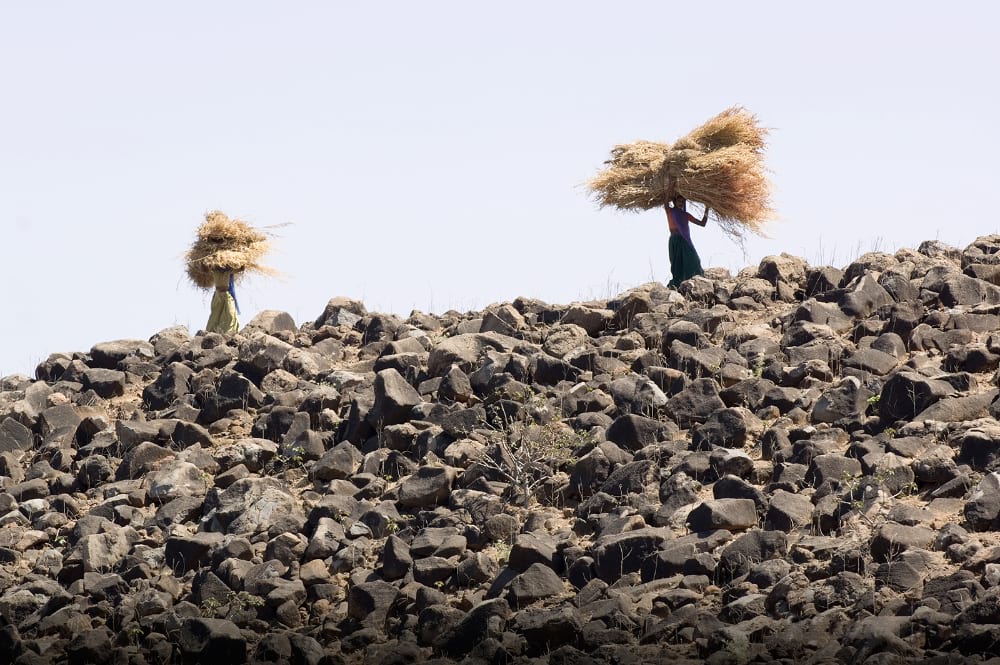
Exploitation on the Rise
“Instability and lack of access to critical services caused by the pandemic mean that the number of people vulnerable to exploitation by traffickers is rapidly growing,” said U.S. Secretary of State Mike Pompeo as he introduced the government’s 20th annual Trafficking in Persons (TIP) report, which monitors the crime and efforts to combat it.
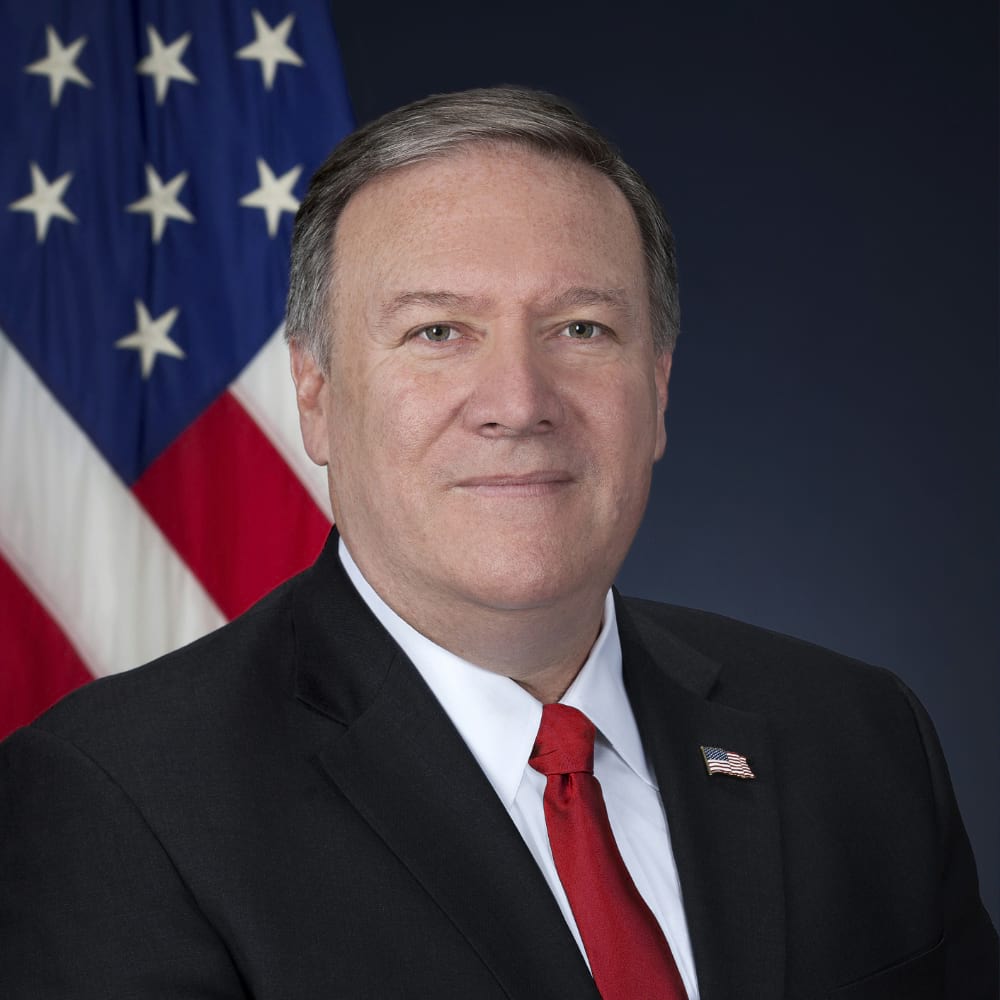
“The bottom line is that traffickers have not shut down,” Pompeo said elsewhere. “Traffickers are continuing to exploit people. And as vulnerable people become more vulnerable due to COVID, it’s making it easier and easier for traffickers to operate.”
Victims of trafficking are also “disproportionately at risk” of getting COVID-19 for a variety of reasons, according to The Lancet. Among the causes: pre-existing health needs, unregulated and unsafe working environments, over-crowded living conditions, poverty, malnutrition and substance misuse.
A United Nations report reveals just how COVID-19 has made trafficking easier. Travel and border restrictions intended to slow the spread of the virus may have only driven traffickers further underground, it says, while also making victims harder to identify. Additionally, those already working in forced labor conditions may face further hardships because production costs are being squeezed, while more people unable to make ends meet may turn to loan sharks for money and so risk getting caught in a debt pit they can’t climb out of, effectively enslaving them.
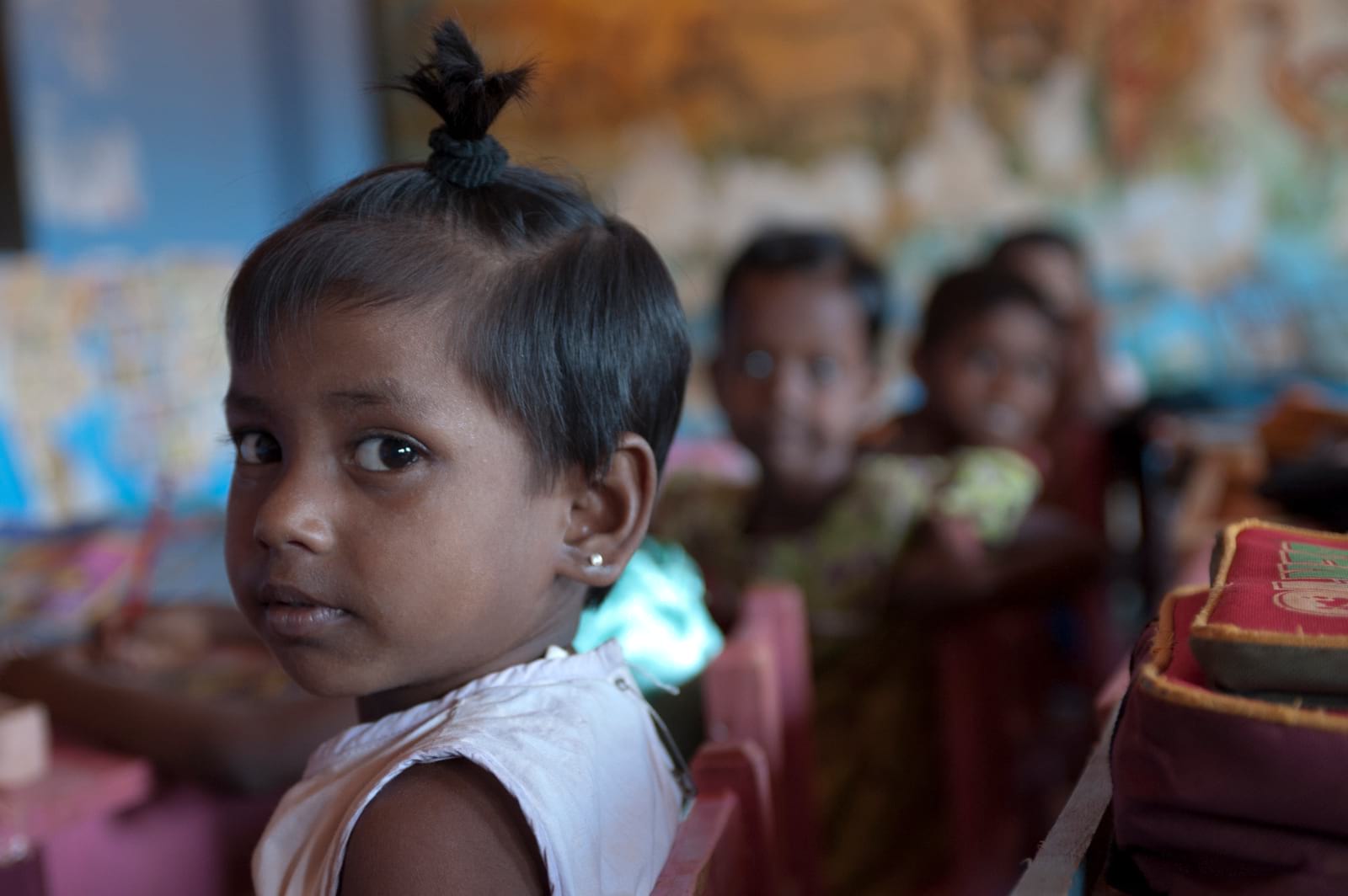
Online Predators on the Rise

It’s not only children and young people in poorer nations that are at risk, either. In North America, the pandemic has seen everyone spending even more time online than usual—exposing them to predators who scour the web looking for innocent children.
“It’s easier for traffickers to sit behind a computer screen and actually reach out to multiple people, hoping that one or two bite,” says Karley Church, a human trafficking crisis intervention counselor with Victim Services of Durham Region, near Toronto, Canada.
A spokesman for the Royal Canadian Mounted Police said that “chatter in dark web forums indicate that offenders see the pandemic as an opportunity to commit more offenses against children.”
Trafficking Takes New Forms
Like all the worst viruses, human trafficking continues to mutate. In Asia, traffickers are known to have masqueraded as relief-aid helpers in order to find new victims, for example during the 2015 Nepal earthquake recovery.
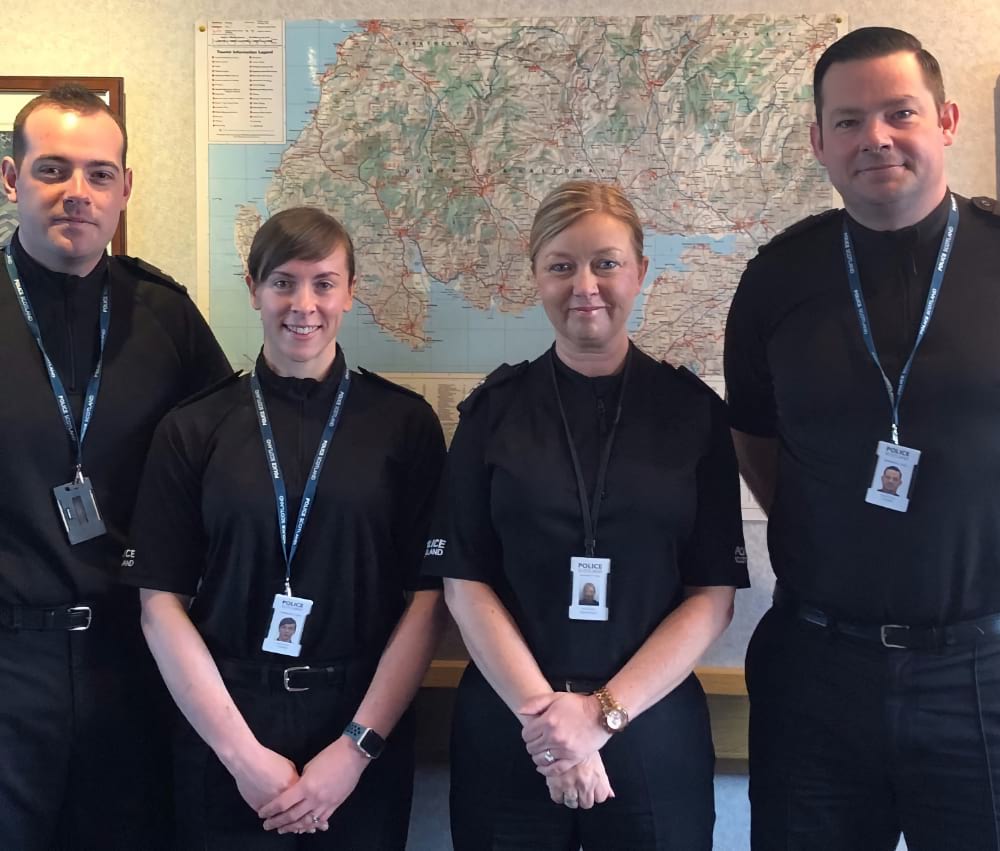
Photo by Dumfries Galloway Police Division, Facebook
A recent Google search for “crime in the time of a virus human trafficking” found multiple results. One report from Asia documents that seasoned traffickers are busy distributing COVID relief materials and essential food items, and using this activity to identify vulnerable families and possible victims. A report by the UN indicates that the COVID crisis is putting human trafficking victims at risk of further exploitation.
In Scotland, police have warned that with many urban businesses closed, traffickers could be turning their sights on more rural areas.
“We often associate human trafficking and modern slavery with cities and urban areas where it’s easier to hide victims of trafficking in plain sight,” says Chief Superintendent Linda Jones, divisional police commander for Dumfries and Galloway. “However, trafficking happens across all communities, both urban and rural.”
INTERPOL, the international police agency, says the pandemic “has not blunted the determination of organized crime groups to prey on the vulnerable and make a profit from these crimes, which all too often cost the victims their lives.”
Rather, organized crime groups have increased the prices they charge those they are promising to get across borders illegally to find work and heightened the risks involved by trying to find unguarded entry points.
A case in point: In March, 64 male migrants were found dead in a shipping container loaded on the back of a truck trying to cross from Malawi into Mozambique. They are believed to have suffocated. Fourteen others survived.
Such large-scale operations—and tragedies—are not limited to less developed nations. At least nine people died, and more were hospitalized, in San Antonio, Texas, in 2017 after around 100 people were crammed into a tractor-trailer smuggling them into the country from South America.
In England, 39 Vietnamese migrants were found dead in a refrigerated truck linked to a European smuggling network in May.
And sometimes those in positions of influence are found to be perpetrators. Mohammad Shahid Islam, a member of Parliament in Bangladesh, was arrested in Kuwait in June as part of a human trafficking network. He allegedly charged Bangladeshis almost US$10,000 for a job in the Middle Eastern country.
Paul Petersen, a former county official in Arkansas, pleaded guilty in June to human smuggling and fraud charges related to paying women from the Marshall Islands to come to the United States to put their babies up for adoption.
In some parts of the world, it’s not only individual leaders but large government entities that actively participate in human trafficking. In this year’s TIP report, the State Department named 10 countries it said have engaged in “government-sponsored forced labor.” Among the claims was an Afghan government “policy or pattern” of recruiting child soldiers and sexually enslaving boys in government compounds, a practice known as “bacha bazi.”
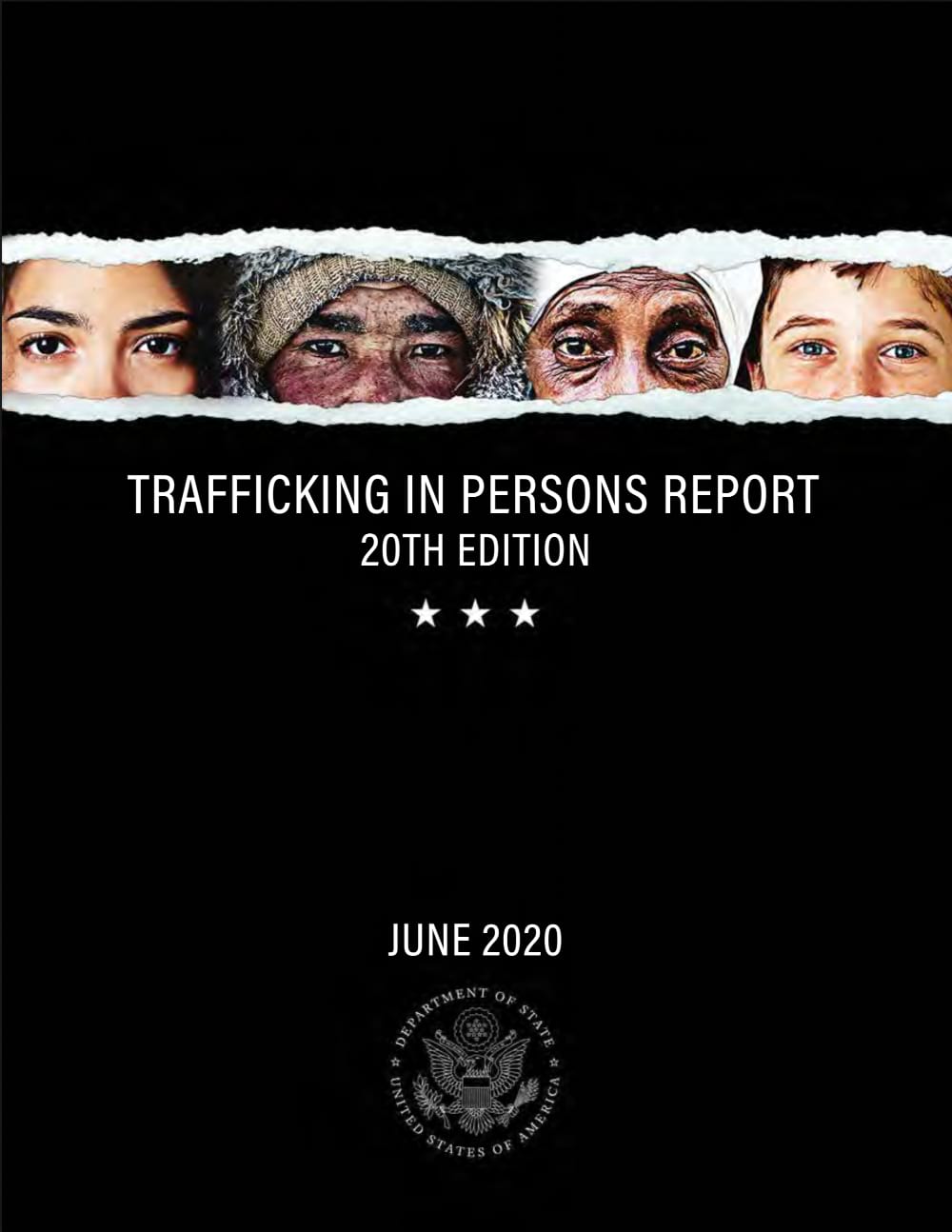
Awareness Training Vitally Needed
While much human trafficking goes on underground, it also often hides in plain sight, such as in domestic workers serving wealthy families, fruit pickers, car wash cleaners and even athletes. For example, in the world of aspiring young athletes, the promise of riches and unscrupulous agents has driven exploitation. According to the U.S. State Department report, “Within Europe’s soccer industry alone, it is estimated there are 15,000 human trafficking victims each year.”
Learning to spot the tell-tale signs of someone who might be enslaved is critical in helping end human trafficking.
It was how a routine traffic stop in Florida led to the arrest of six men who “orchestrated an extensive human trafficking ring.” Following a vehicle reported stolen in Ohio, deputies arrested the driver and his female passenger, whose behavior made them suspect she was under coercion. Eventually, she trusted the officers enough to reveal what she was caught up in.
Such alertness isn’t just needed from first responders like police and EMS providers who, according to the U.S. Fire Administration, are “well-suited to help counter human trafficking” because of how they come into contact with people. People working in hotels, bars or sporting events should also be trained to discern the signs of human trafficking because of the high level of interaction with others. The Illinois Hotel and Lodging Association, for example, has arranged for awareness training for all its members.
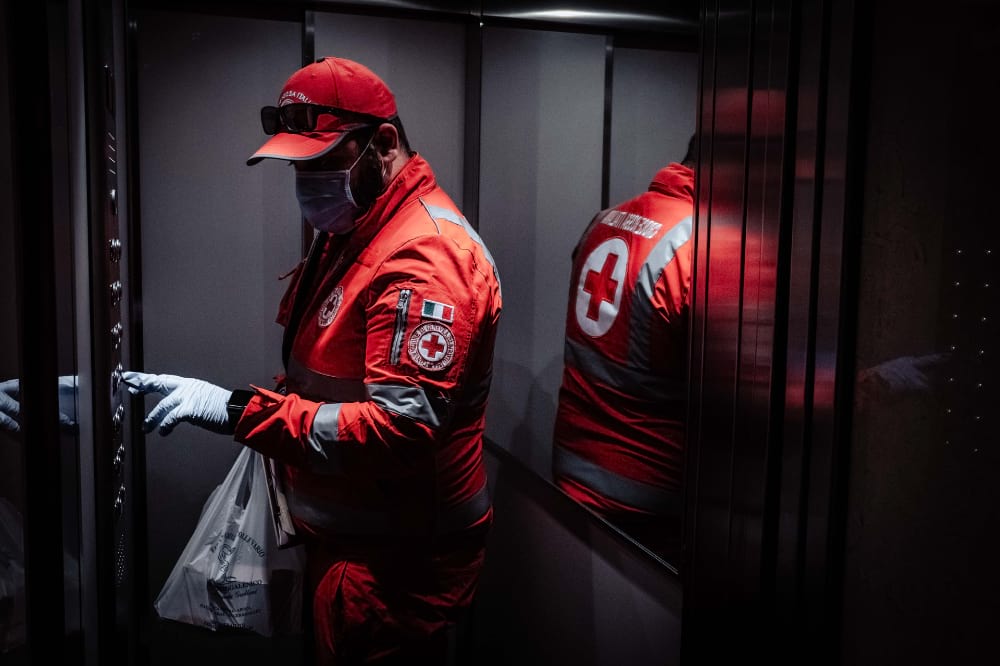
The Power of Faith-based Action
Charting the progress that has been made in fighting human trafficking over the past 20 years by governments and other agencies, the latest TIP report notes the important part played by faith-based groups like Gospel for Asia. They are “powerful and necessary forces,” it says.
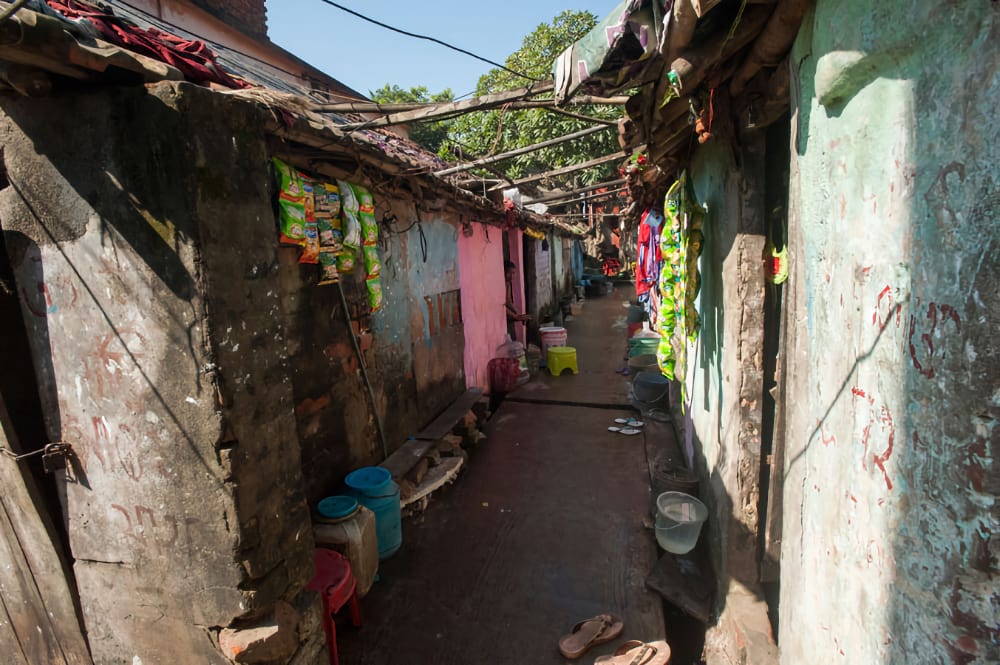
“Unlike governments, faith-based organizations are not limited by jurisdiction, election cycles, or political will.”
“They reach across international borders,” the report says, “spanning continents with a powerful network of followers with tremendous reach—from remote villages to capital cities and the seats of power.”
Gospel for Asia workers seek to help those caught in the human trafficking chain by reaching out to sex workers in red light districts—like the testimony of Pastor Dhinanath and his wife Lydia who helped Athalia escape sexual slavery.
They also aim to break the cycle by providing vocational training and tools that can provide an income and keep people from getting trapped in perpetual debt.
Another way they help is by caring for children whose parents are forced to work all day.
“While these parents are engaged in their daily work, their children are left unattended,” says Kien, who works at one of Gospel for Asia’s Bridge of Hope community centers that opened its doors to the youngsters. “They have no parental guidance or supervision whatsoever. … They are let loose, and they become very unruly. They do not obey or listen to others. This is a big need here to teach their children.”
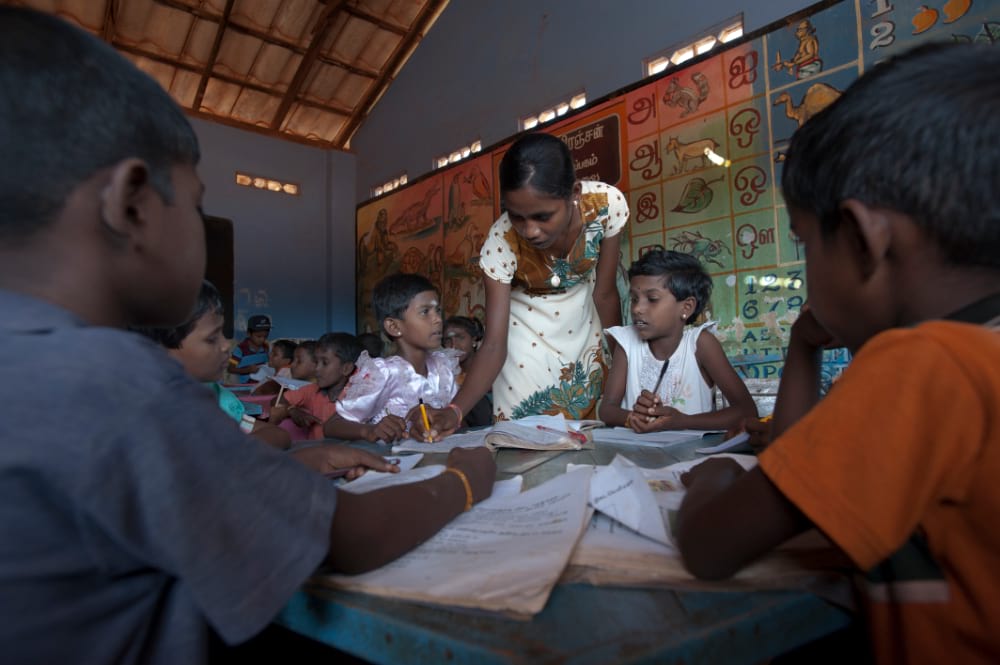
At the center, children get a hot meal and schooling and experience genuine love and care from staff.
“I feel very happy and joyful because of the work that we are doing among them,” says Kien. “These children will get a new life; they will become new persons as we teach them. I feel very glad and happy to think where these children will be in the future because of the investment we have made in their lives while here at the center.”
While bright spots like Gospel for Asia exist, a recent report by PBS says that COVID is making it harder for many worthy NGOs to survive, suggesting that only 24 percent of anti-trafficking organizations would be able to remain fully operational without extra funding in the next 12 months.
Your gift today can make an enormous difference in helping the fight against slavery and human trafficking. And your ongoing prayers are welcome too, as this fight—like the battle to beat COVID-19—is not looking to be an easy one to win.
Give Towards Strategic Field Ministries
Your donation enables GFA World national workers to reach out to multitudes of needy people and provide for their most crucial physical and spiritual needs.
About Gospel for Asia
Gospel for Asia (GFA World, www.gfa.org) is a leading faith-based mission agency, helping national workers bring vital assistance and spiritual hope to millions across Asia, especially to those who have yet to hear about the love of God. In GFA’s latest yearly report, this included more than 70,000 sponsored children, free medical camps conducted in more than 1,200 villages and remote communities, over 4,800 clean water wells drilled, over 12,000 water filters installed, income-generating Christmas gifts for more than 260,000 needy families, and spiritual teaching available in 110 languages in 14 nations through radio ministry. For all the latest news, visit our Press Room at https://press.gfa.org/news.
Read more news on Gospel for Asia, Modern Slavery, and the COVID 19 Pandemic.
Learn more by reading these Special Reports from Gospel for Asia:
- Child Labor: Not Gone, but Forgotten — Millions of Children Trapped between Extreme Poverty and the Profits of Others
- Seeking Justice and Defending Human Rights — Wherever Poverty and Oppression Exist
KP Yohannan has issued two statements about the COVID-19 situation found here and here.
GFA’s Statement About Coronavirus
This Special Report originally appeared on gfa.org.
Read what Christian Leaders have to say about Gospel for Asia.




